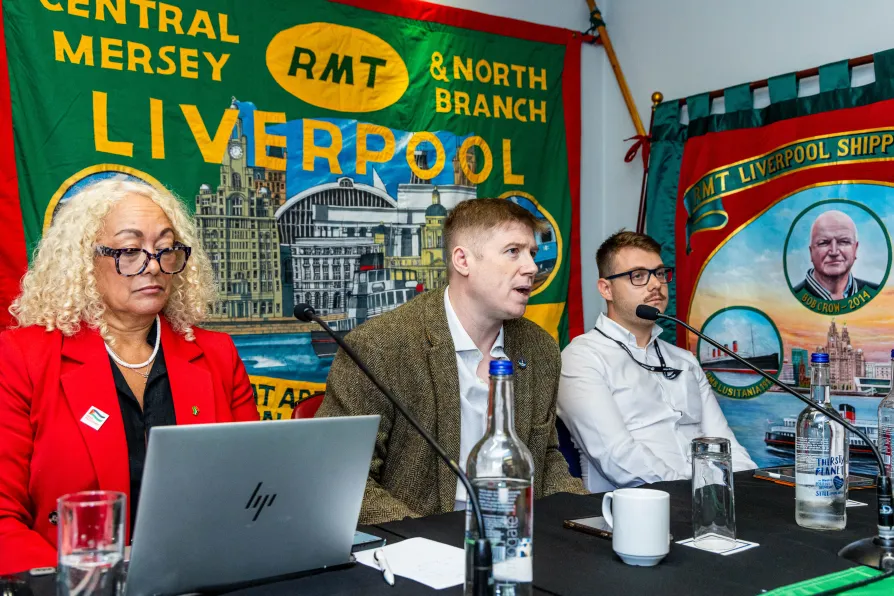
 Photo: Neil Terry Photography
Photo: Neil Terry Photography
TRANSPORT union leaders gathered at a Labour conference fringe event today and pressed the party to turn pledges on public transport into urgent action.
RMT general secretary Eddie Dempsey, Aslef general secretary Mick Whelan and TSSA general secretary Maryam Eslamdoust joined a panel examining Labour’s progress and the commitments still needed to improve the rail network and wider transport sector.
Mr Dempsey said many of the country’s challenges were “structural problems that go back through 40 years of neoliberalism that transferred much of our national wealth abroad.”
“We don’t make anything here any more and we repurposed our entire economy to serve the interests of the financial sector away from the real economy,” he said, adding that fixing this would take time.
He argued that three steps can be immediately taken: “First, we have got to invest in rebuilding a productive economy — starting with rail capacity around expanding our energy grids and energy storage network.
“Second, we’ve got to empower workers. And thirdly, we’ve got to restructure our economy, and that’s going to take time,” he said.
Mr Dempsey welcomed Transport Secretary Heidi Alexander’s announcement at the conference today that four more services will be brought into public ownership by next year.
West Midlands Trains services will transfer on February 1, and Govia Thameslink Railway’s services on May 31. Chiltern Railways and Great Western Railways services will then be the next to transfer.
But “there’s still a job to be done,” Mr Dempsy said, adding that “the biggest wave of insourcing in a generation” promised has yet to be seen.
Mr Whelan criticised Labour’s 10-year plan as short-termist, saying unions had sought a 30-year strategy. He described the reported £96 billion figure as “money that they’ve already committed to” rather than fresh investment.
“We want a railway for the people of this country, owned by the people of this country, and used by the people of this country,” he said.
Ms Eslamdoust welcomed the shift towards public ownership but warned against repeating privatisation’s mistakes.
Passengers and transport workers “deserve a service that’s run for the public good, not just for shareholders’ profits,” she said, cautioning that job losses and cuts to terms and conditions amid tight budgets risk undermining the benefits of renationalisation.
All three leaders urged meaningful consultation with unions and sustained new investment, arguing that a properly funded, publicly run transport system would deliver cheaper fares, more reliable services and long-term economic benefits.










